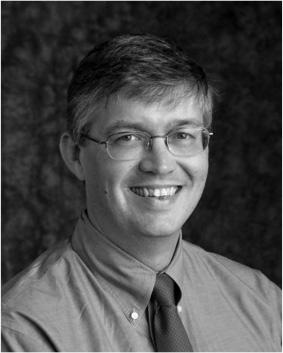Prof. Dr. Jon McGinnis
Jon McGinnis
is a Greco-Arabist who also has interest in medieval Latin science, philosophy and theology. He received a Master's in Church History from the University of North Texas (1991) and a Ph.D. in Philosophy from the University of Pennsylvania (2000), where he worked jointly in the philosophy department and the Center for Middle Eastern Studies.
As a graduate student he was a research fellow at Harvard University for a year in the department of the History of Science. He also was a Fulbright scholar to Egypt, where he studied at both the American University in Cairo and the University of Cairo.
Since becoming a professor at the University of Missouri, St. Louis he has received a University of Missouri Research Board Award as well as National Endowment for the Humanities Summer Research Stipend, two NEH Fellowships and has been elected to Membership at the Institute for Advanced Study. He is also on the executive council of the Society for Medieval and Patristic Philosophy. In addition to being the philosophy department's resident classicist and medievalist, he is also a fellow in the Center for International Studies.
His dissertation, Time and Time Again: A Study of Aristotle and Ibn Sînâ's Temporal Theories examines Aristotle's and the Muslim Aristotelian Avicenna's conceptions of time. In addition to his interest in ancient and medieval temporal theory, he has also recently completed translating Avicenna's treatise on kinematics, or the theory of motion and what is required for motion, and is beginning work on a book to be titled Avicennan Kinematics: Its Sources, Content and Influence, which in fact will be the first survey of medieval, Arabic kinematics. He also has done work on medieval Islamic conceptions of science and modal theories as well.
He has published articles in the American Catholic Philosophical Quarterly, Medieval Philosophy and Theology, The Journal for Patristic, Medieval and Renaissance Studies, The Journal of the History of Philosophy, KronoScope, The Modern Schoolman, Apeiron and Arabic Sciences and Philosophy. He also has several articles appearing as chapters in books dedicated to Islamic philosophy and science. He is both a contributor to and editor of a collection of articles on Avicenna, titled Interpreting Avicenna: Science and Philosophy in Medieval Islam (Leiden: Brill, 2004). In collaboration with David C. Reisman he is bringing out the first anthology of classical Arabic philosophy to be published by Hackett Press in 2005.
Course Title: Natural Philosophy in Medieval Islam: Its Historical, Scientific and Philosophical Context
Course Description:
The course “Natural Philosophy in Medieval Islam: Its Historical, Scientific and Philosophical Context” explores the world through the eyes of medieval Muslim intellectuals. It considers what these thinkers had to say about such question as: what makes up our world; how big is the world; how old is the world; what sort of changes do the things that make up the world undergo and even are there angels and what role, if any, do they play in the world. While all these questions (even the ones about angels) belong to the science of physics, or what is called natural philosophy, they also lead to questions about God’s relation to creation. Moreover, the various answers to these questions informed many of these Muslims understanding of the Quran with its many claims about the world and God's relation to it. Consequently, understanding how these thinkers understood the world helps one better appreciate not only the classical period of Islamic philosophy and science, but also a formative period of Islamic theology. Thus, whether you have interests in Islamic history, theology, philosophy or science, there is something in this course for everyone.
